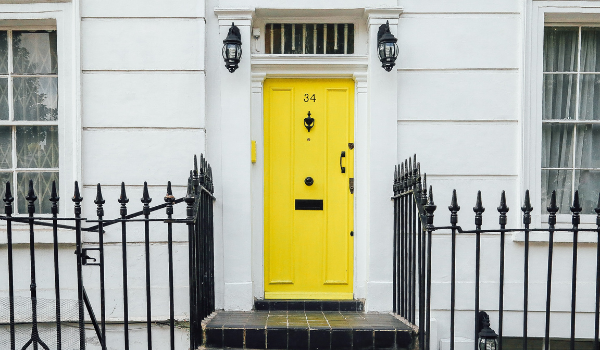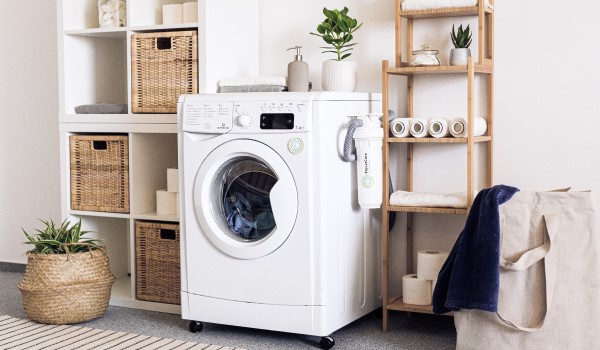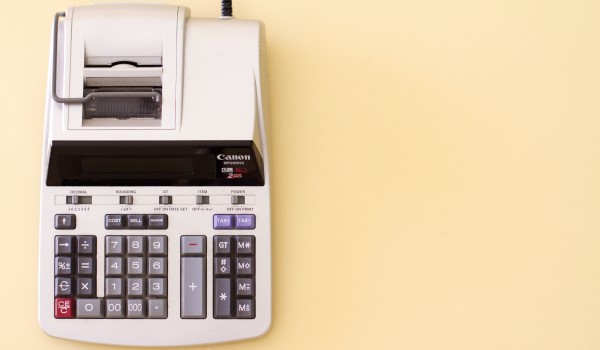Saving for a house can feel like a never-ending task, but our collection of savvy saving tips and insider info can help you get a deposit together more quickly, ticking one big item off your list.
1. Decide on your budget
The first thing to consider is how much deposit you’ll actually need. Not only does this help you work out how much to save, but you’ll know what price range to look for when buying your house. Most lenders need a minimum deposit of 10%, so if you can save around £15,000 you could look at properties around the £150,000 mark. Bear in mind, though, that you’ll need to save about £5,000 to put towards solicitor’s fees – and you’ll also need to think about any extra money you’ll need for decorating and furniture, to make your new place feel like home.
2. Plan your monthly savings
With some workable figures in mind, it’s time to start saving. Obviously, the amount you’ll be able to save each month depends on your budget and may vary from month to month, too. While some months you might be able to save a set amount, other times, you might have to put away little and often – it’s all about what works for you. Whatever you decide, putting away the money at the start of the month – instead of ‘banking’ what’s left – can help you save more easily, as you’ll be less tempted to spend.
3. Cut your rental costs
It might seem difficult to save up while renting, but we’ve got some great pointers:
- Downsize: If it’s possible, you could save a whole lot of money by moving to a smaller place as a temporary measure. Even saving just £100 on your monthly rent adds up to £1,200 at the end of the year.
- Stay with friends: If you have willing friends or family who live locally, you might be able to stay with them cheaply, or even for free. The average rental cost in the East Midlands is £694 per month, which means you could save over £8,000 within a year.
- Change location: You might be renting in a more expensive area, such as close to the city, for ease. It could be worth moving further afield, where there are more likely to be cheaper rental properties. One word of warning, though – don’t forget to factor in travel costs.
4. Get a Government bonus
You’ve likely come across an ISA (Individual Savings Account) before, but one you might not know about is a LISA (Lifetime ISA). It’s a type of ISA designed for a first home or retirement fund (or both). Here are a few things you might like about them:
- The Government pays in a 25% bonus on whatever you save, up to a bonus limit of £1,000 per tax year.
- You can pay in up to £4,000 per tax year – which means that when you add the Government bonus, you could save £5,000. Even better, you’ll earn interest on top, though how much might vary between providers.
- With Beehive Money, you can open a LISA quickly and easily online, with just £1. It’s easy to set one up.
- You can open a LISA at any point between the ages of 18-39, and the Government pays in the 25% bonus until you turn 50. However, you’ll still benefit from monthly interest until you turn 60.
Be aware that if you take money out of your LISA for pretty much any other reason than buying your first home or retiring, or within the first year of opening your account, you’ll have to pay a 25% penalty on your withdrawal. Which could mean you get back less than you put in.
We’ve put together a handy table to show how much you could save over the first few years of opening a LISA, assuming you’re saving around £300 per month, and paying in on the first of each month. Of course, you’ll also earn interest on top of this – set by your provider.
| Year | Savings per month | Months saved | Savings | Bonus earned each year | Total savings |
| 1 | £300 | 12 | £3,600 | £900 | £4,500 |
| 2 | £300 | 12 | £3,600 | £900 | £9,000 |
| 3 | £300 | 12 | £3,600 | £900 | £13,500 |
| 4 | £300 | 4 | £1,200 | £300 | £15,000 |
The maximum you can save each tax year is £4,000. The Government will pay a 25% bonus of up to £1,000 each tax year. You can withdraw money from a Lifetime ISA to buy your first home, or at age 60. Other withdrawals will usually mean a 25% Government charge, so you could get back less than you put in. Full terms and conditions apply.
5. Buy with someone else
If you’re happy to buy with someone else, such as a partner, you could reach your deposit target even quicker. And, if they’re a first-time buyer and eligible to open a LISA, they could also enjoy the 25% Government bonus up to £1000 on what they save. Just so you know, it’s not possible to open a joint LISA and you’ll actually earn more in bonuses by having separate accounts – totalling up to £2,000 per year.
6. Cut your expenses
Sometimes one of the best ways to save money is to simply be a little more frugal. Here are a few ideas on how to turn everyday spending, into everyday saving:
- Review bills: Contact energy, mobile phone and insurance providers to ask for a better deal. If you’re coming up to a renewal, you might even be able to negotiate a cheaper plan or better terms. Don’t forget to ask to remove any extras, if you’re not using them.
- Have a ‘no-spend’ day: Your daily coffee or work lunch adds up over time. Try having days where you ‘BYOL’ (bring your own lunch) or even better, skip the takeaway cuppa.
- Switch to ‘fakeaways’: Homemade takeaways can look and taste as good as the real thing, but are far cheaper and healthier to boot.
If you need more inspiration, take a look at our blog for more tips on managing your money.









